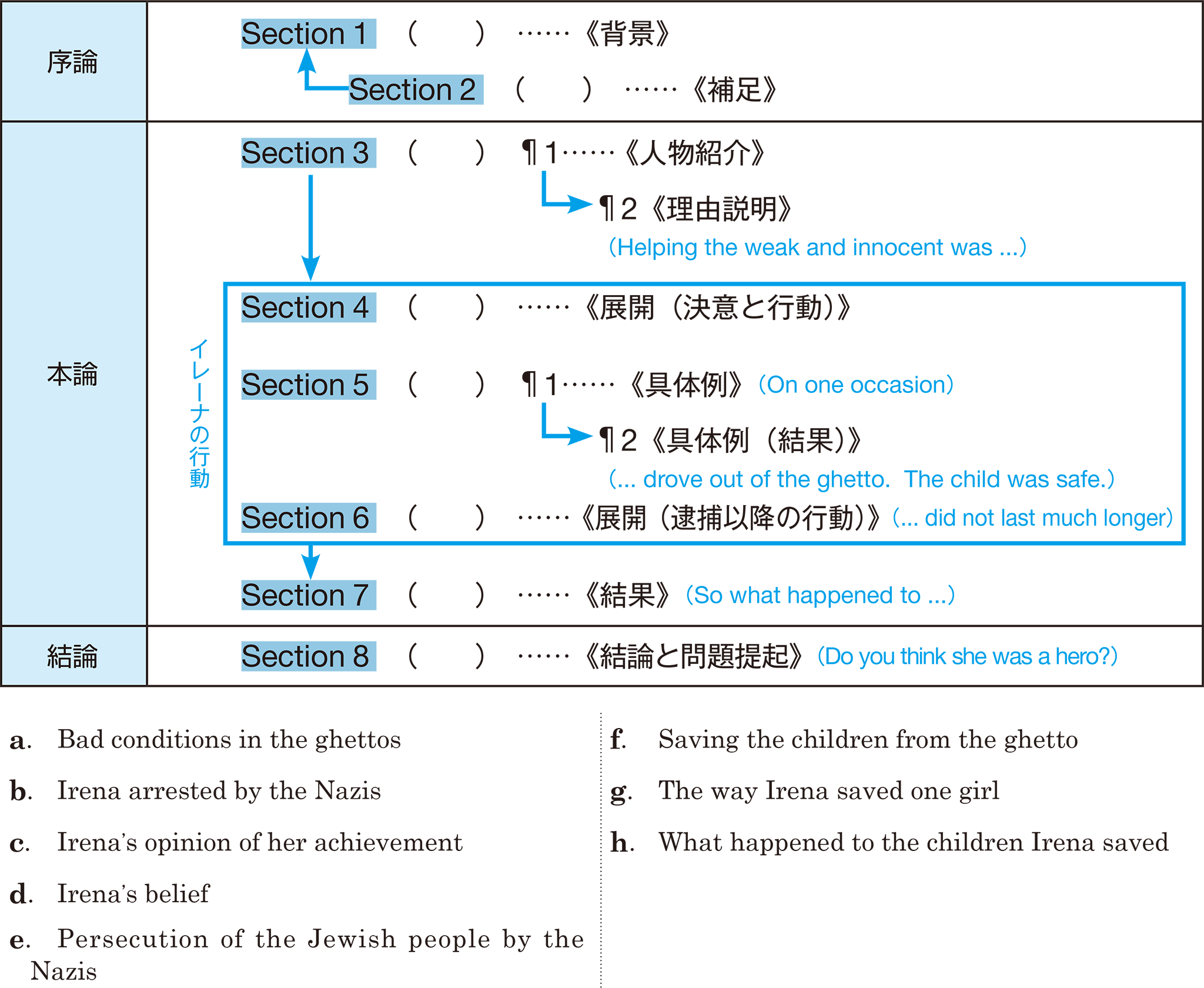POST-READING
EXTRACTING THE MAIN IDEA
Which of the following is the most appropriate as the main idea of the passage?
- Many Jewish people in the ghettos suffered from starvation and disease. Social workers like Irena Sendler were allowed to enter the ghettos, but they were not allowed to help, or their families would be in danger.
- Jewish children were taken out of the ghetto by Irena Sendler and several others, hidden in boxes and bags, under piles of vegetables and among old clothes, and they saw her as a hero.
- Irena Sendler was told by her father to always help the weak, even if she thought she was weak herself, and she put those lessons into practice but she was arrested.
- Irena Sendler, who helped the Jewish people living in the ghetto and worked with other workers to save the Jewish children in spite of great risks, thought she hadnʼt done anything much.
SHARING YOUR OPINION
MORE! SHARING YOUR OPINION
Working in pairs, share your opinions about the following questions.
Question A Why do you think Irena put so much value on the childrenʼs pasts?
Question B When people see a person as a hero, what kind of person do you think he or she is?
 Useful Words or Phrases
Useful Words or Phrases
- 勇気 courage
- ~を…するために捧げる sacrifice ~ to do
- 信念 faith
- ~の責任にする blame ~
- ~を許す forgive ~
CHECKING THE FRAMEWORK
Fill in the blanks, selecting from a ~ h below the most appropriate title for each section. Also check how the sections and paragraphs relate to each other.

SUMMARY
Fill in the blanks, thinking back to the answer to the question following each section numbers. Read the finished summary aloud.

Under persecution by the Nazis, Jewish people in Poland were made to ①(live in ghettos). Irena Sendler was eager to help the Jewish people who were sent to the Warsaw ghetto because her father had taught her to help ②(the weak and innocent). Irena and several other social workers thought the Jewish children were the weakest in the ghettos, so under very risky conditions they worked together to ③(take〔carry / get〕them out of the ghetto) to safety. In 1943, Irena ④(was arrested) and even tortured, but she said nothing and after she was rescued by her friends she continued to help Jewish children. The children Irena saved were safely raised under false identities, but she made a list of the children’s names, ages, and other information so that they could ⑤(learn〔know〕about their pasts). Though she saved the lives of some 2,500 children, she didn’t think the term ‘hero’ was right for her because she thought she ⑥(had done so little〔hadn’t done enough〕).